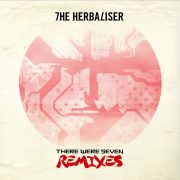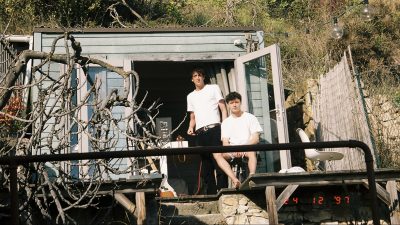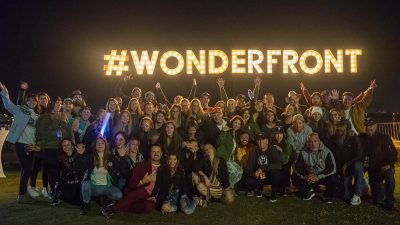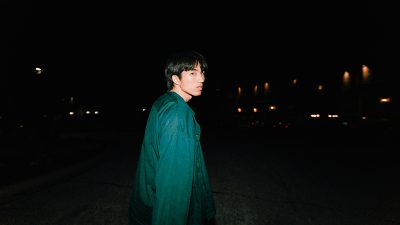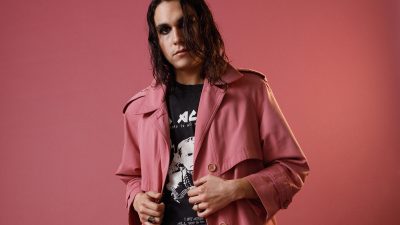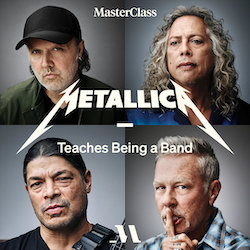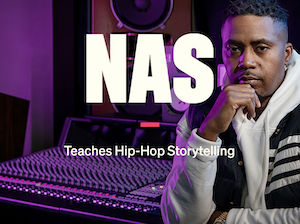Music and evolution: a Q&A with Bailiff
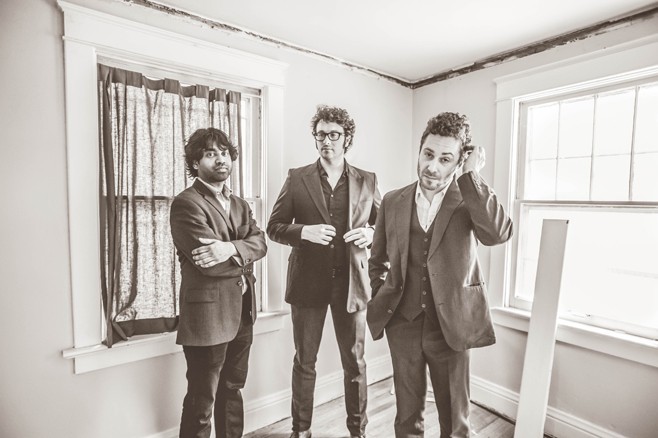
Chicago’s three-piece indie rockers, Bailiff, continue to evolve after the release of their acclaimed second album Remise. Following the two-year period between their debut 2011 release, which garnered them enough praise to open for the likes of The Lumineers and Nada Surf, the band employed the services of crowd source funding site Kickstarter to help create their second LP. Now richer in both depth and self-awareness, the band continues to carve out a sound that is impressive in quality and ability.
Playing at festivals across North America, Bailiff recently stopped by Toronto to play at NXNE. Quip caught up with the guys after their Leslieville BBQ set, beneath the shade of a maple tree.
Laura Eley: What do you enjoy about NXNE and the city of Toronto?
Josh Siegel: It feels like the perfect sized festival, where every show’s packed, but there isn’t a two-hour line to get into the show like some other festivals. Whoever runs it does a good job of picking the bands because we’ve seen a lot of cool bands.
LE: You guys are from Chicago, a city with a ton of great festivals. Do you attend any cool ones?
Ren Mathew: In the summer, basically towards the end of May, it’s summer music festival and festival season. Every weekend there’s something going on, spread out throughout the city. Some are smaller festivals and some are big. Some of the smaller festivals are the ones that I always tend to go to, there’s one called Do Division, Wicker Park Fest, and there’s a Ribfest. There’s a lot of music.
LE: You guys released a record earlier this year and did some stuff with Kickstarter for it. What was using Kickstarter like? Was it easy?
JS: I wouldn’t say easy. We thought it would be, and then by the second week we realized we couldn’t just hit launch and it would take care of itself. We had to come up with little ways to keep the campaign exciting the whole time, so we released a cover song and did little videos to make it worth coming back to the page and checking it out. But it definitely exceeded our expectations, we didn’t even know if we’d meet our goal.
LE: If you don’t meet the goal, then you don’t get the money?
Owen O’Malley: Yeah, with Kickstarter it’s all or nothing.
JS: But I think that’s one of the reasons it’s a more exciting way to do it. Once you join the campaign, you start to check in and think “They’re only going to do this if they get that much more money.” But for us it was amazing and we couldn’t have made the record that we did without it.
LE: Your debut album came out in 2011. How did the first compare to the second?
RM: I think one of the biggest differences is the fact that Owen is in the band now, on the bass. I think we’ve all grown as musicians and songwriters, and some of the areas that we hinted at in the first record, we explored a little deeper in this record; it was a lot of extremes, really slow, ballad-y songs.
LE: You feel more gelled now?
RM: I think so. We’ve toured a bunch as a trio. I feel like writing music together after playing on the road a bunch is a good thing.
LE: You’ve toured and played across North America. Any favourite spots?
OO: Knoxville, Tennessee, was awesome. We’re going back there in August, but we were there in February for the first time and it was very cool. We were only there once, and we have no idea who we’re going to be paired with on a bill, and the band that played before us was really cool, the audience was cool. It was walking into a city and it was apparent that people had a very positive attitude towards music.
LE: How do you feel about social media?
JS: There are times when it feels like a responsibility. I do like it quite a bit, but it’s like the days of the reclusive, mystery artist…it’s just really hard to balance being the person where it’s like “Hey it’s me, we’re making clever posts”, it’s like its own little world. Some of my favourite musicians I could never picture doing social media, whereas nowadays it feels like a necessity. You don’t actually get the person’s reaction. I just know people who put a little too much out there.
LE: Maybe they don’t think about how many people are actually accessing their messaging?
OO: They don’t have that immediate reaction, like if you say something similar to a small group at a party.
LE: Josh, you decided to dropout of Berklee and pursue music. Do you have any advice for other musicians who are considering leaving school in pursuit of music?
JS: Do it. Part of it, for me, was that I started music college late, I was 22 when I enrolled and I turned 23 shortly after starting. I had friends who were 18 and 19, and it felt different for them because they were straight out of high school and your twenties are an important time as a musician. I definitely needed to go through that experience if anything, being put in that position to say “Do I want to spend four years in college or risk it?” My sight reading was so bad that I was pretty much flunking out by the time that came around, so that made it easier to do. I think if you’re doing really well in school, don’t listen to me.
LE: So this is grade dependent advice?
JS: Yes.
LE: What’s up next?
RM: We’re releasing part of our album – we kind of split it into two parts – featuring some new songs later this year. A lot of touring and promotion of that. We’ll hopefully get out to some festivals.
OO: MidPoint Music Festival in Cincinatti; a tiny festival called Pinestock on somebody’s family farm.
RM: Just writing new music, getting working on a new album.
Photo by Melissa Lin Ellis, courtesy of the artist


